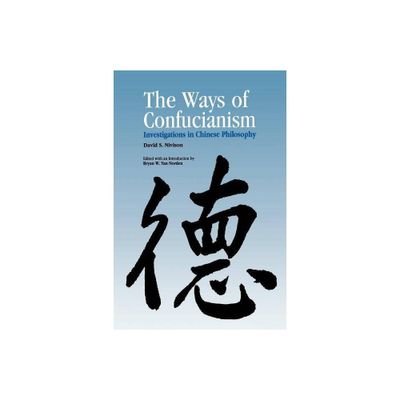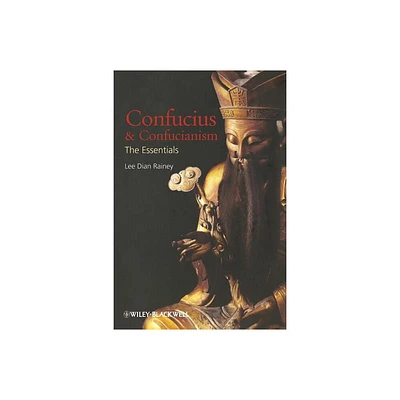Home
Balthasar Light of Early Confucianism
Loading Inventory...
Barnes and Noble
Balthasar Light of Early Confucianism
Current price: $55.00


Barnes and Noble
Balthasar Light of Early Confucianism
Current price: $55.00
Loading Inventory...
Size: Hardcover
*Product Information may vary - to confirm product availability, pricing, and additional information please contact Barnes and Noble
In this original study, Joshua Brown seeks to demonstrate the fruitfulness of Chinese philosophy for Christian theology by using Confucianism to reread, reassess, and ultimately expand the Christology of the twentieth-century Catholic theologian Hans Urs von Balthasar. Taking up the critically important Confucian idea of
xiao
(filial piety), Brown argues that this concept can be used to engage anew Balthasar’s treatment of the doctrine of Christ’s filial obedience, thus leading us to new Christological insights. To this end, Brown first offers in-depth studies of the early Confucian idea of
and of Balthasar’s Christology on their own terms and in their own contexts. He then proposes that Confucianism affirms certain aspects of Balthasar’s insights into Christ’s filial obedience. Brown also shows how the Confucian understanding of
provides reasons to criticize some of Balthasar’s controversial claims, such as his account of intra-Trinitarian obedience. Ultimately, by rereading Balthasar’s Christology through the lens of
,
Balthasar in Light of Early Confucianism
employs Confucian and Balthasarian resources to push the Christological conversation forward. Students and scholars of systematic theology, theologically educated readers interested in the encounter between Christianity and Chinese culture, and comparative theologians will all want to read this exceptional book.
xiao
(filial piety), Brown argues that this concept can be used to engage anew Balthasar’s treatment of the doctrine of Christ’s filial obedience, thus leading us to new Christological insights. To this end, Brown first offers in-depth studies of the early Confucian idea of
and of Balthasar’s Christology on their own terms and in their own contexts. He then proposes that Confucianism affirms certain aspects of Balthasar’s insights into Christ’s filial obedience. Brown also shows how the Confucian understanding of
provides reasons to criticize some of Balthasar’s controversial claims, such as his account of intra-Trinitarian obedience. Ultimately, by rereading Balthasar’s Christology through the lens of
,
Balthasar in Light of Early Confucianism
employs Confucian and Balthasarian resources to push the Christological conversation forward. Students and scholars of systematic theology, theologically educated readers interested in the encounter between Christianity and Chinese culture, and comparative theologians will all want to read this exceptional book.


















